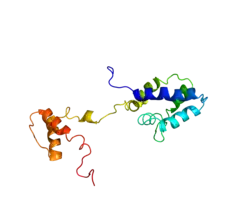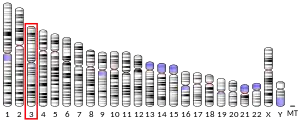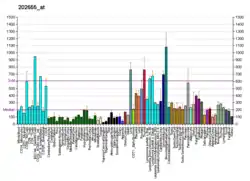| MANF | |||||||||||||||||||||||||||||||||||||||||||||||||||
|---|---|---|---|---|---|---|---|---|---|---|---|---|---|---|---|---|---|---|---|---|---|---|---|---|---|---|---|---|---|---|---|---|---|---|---|---|---|---|---|---|---|---|---|---|---|---|---|---|---|---|---|
 | |||||||||||||||||||||||||||||||||||||||||||||||||||
| |||||||||||||||||||||||||||||||||||||||||||||||||||
| Identifiers | |||||||||||||||||||||||||||||||||||||||||||||||||||
| Aliases | MANF, ARMET, ARP, arginine-rich, mutated in early-stage tumors, arginine-rich protein, mesencephalic astrocyte-derived neurotrophic factor, mesencephalic astrocyte derived neurotrophic factor | ||||||||||||||||||||||||||||||||||||||||||||||||||
| External IDs | OMIM: 601916 MGI: 1922090 HomoloGene: 4383 GeneCards: MANF | ||||||||||||||||||||||||||||||||||||||||||||||||||
| |||||||||||||||||||||||||||||||||||||||||||||||||||
| |||||||||||||||||||||||||||||||||||||||||||||||||||
| |||||||||||||||||||||||||||||||||||||||||||||||||||
| |||||||||||||||||||||||||||||||||||||||||||||||||||
| Wikidata | |||||||||||||||||||||||||||||||||||||||||||||||||||
| |||||||||||||||||||||||||||||||||||||||||||||||||||
Arginine-rich, mutated in early-stage tumors (ARMET), arginine-rich protein (ARP), or mesencephalic astrocyte-derived neurotrophic factor (MANF) is a protein that in humans is encoded by the MANF housekeeping gene.[4][5]
This gene encodes a highly conserved protein whose function is known. The protein was initially thought to be longer at the N-terminus and to contain an arginine-rich region but transcribed evidence indicates a smaller open reading frame that does not encode the arginine tract. The presence of a specific mutation changing the previously numbered codon 50 from ATG to AGG, or deletion of that codon, has been reported in a variety of solid tumors. With the protein size correction, this codon is now identified as the initiation codon.[5]
References
- 1 2 3 GRCh38: Ensembl release 89: ENSG00000145050 - Ensembl, May 2017
- ↑ "Human PubMed Reference:". National Center for Biotechnology Information, U.S. National Library of Medicine.
- ↑ "Mouse PubMed Reference:". National Center for Biotechnology Information, U.S. National Library of Medicine.
- ↑ Petrova P, Raibekas A, Pevsner J, Vigo N, Anafi M, Moore MK, Peaire AE, Shridhar V, Smith DI, Kelly J, Durocher Y, Commissiong JW (Jun 2003). "MANF: a new mesencephalic, astrocyte-derived neurotrophic factor with selectivity for dopaminergic neurons". J Mol Neurosci. 20 (2): 173–88. doi:10.1385/JMN:20:2:173. PMID 12794311. S2CID 218459504.
- 1 2 "Entrez Gene: ARMET arginine-rich, mutated in early stage tumors".
External links
- Human MANF genome location and MANF gene details page in the UCSC Genome Browser.
Further reading
- Gerhard DS, Wagner L, Feingold EA, et al. (2004). "The status, quality, and expansion of the NIH full-length cDNA project: the Mammalian Gene Collection (MGC)". Genome Res. 14 (10B): 2121–7. doi:10.1101/gr.2596504. PMC 528928. PMID 15489334.
- Gevaert K, Goethals M, Martens L, et al. (2004). "Exploring proteomes and analyzing protein processing by mass spectrometric identification of sorted N-terminal peptides". Nat. Biotechnol. 21 (5): 566–9. doi:10.1038/nbt810. PMID 12665801. S2CID 23783563.
- Lai MC, Kuo HW, Chang WC, Tarn WY (2003). "A novel splicing regulator shares a nuclear import pathway with SR proteins". EMBO J. 22 (6): 1359–69. doi:10.1093/emboj/cdg126. PMC 151058. PMID 12628928.
- Strausberg RL, Feingold EA, Grouse LH, et al. (2003). "Generation and initial analysis of more than 15,000 full-length human and mouse cDNA sequences". Proc. Natl. Acad. Sci. U.S.A. 99 (26): 16899–903. Bibcode:2002PNAS...9916899M. doi:10.1073/pnas.242603899. PMC 139241. PMID 12477932.
- Tanaka H, Shimada Y, Harada H, et al. (2000). "Polymorphic variation of the ARP gene on 3p21 in Japanese esophageal cancer patients". Oncol. Rep. 7 (3): 591–3. doi:10.3892/or.7.3.591. PMID 10767373.
- Shridhar V, Rivard S, Wang X, et al. (1997). "Mutations in the arginine-rich protein gene (ARP) in pancreatic cancer". Oncogene. 14 (18): 2213–6. doi:10.1038/sj.onc.1201054. PMID 9174057.
- Shridhar R, Shridhar V, Rivard S, et al. (1997). "Mutations in the arginine-rich protein gene, in lung, breast, and prostate cancers, and in squamous cell carcinoma of the head and neck". Cancer Res. 56 (24): 5576–8. PMID 8971156.
- Shridhar V, Rivard S, Shridhar R, et al. (1996). "A gene from human chromosomal band 3p21.1 encodes a highly conserved arginine-rich protein and is mutated in renal cell carcinomas". Oncogene. 12 (9): 1931–9. PMID 8649854.


